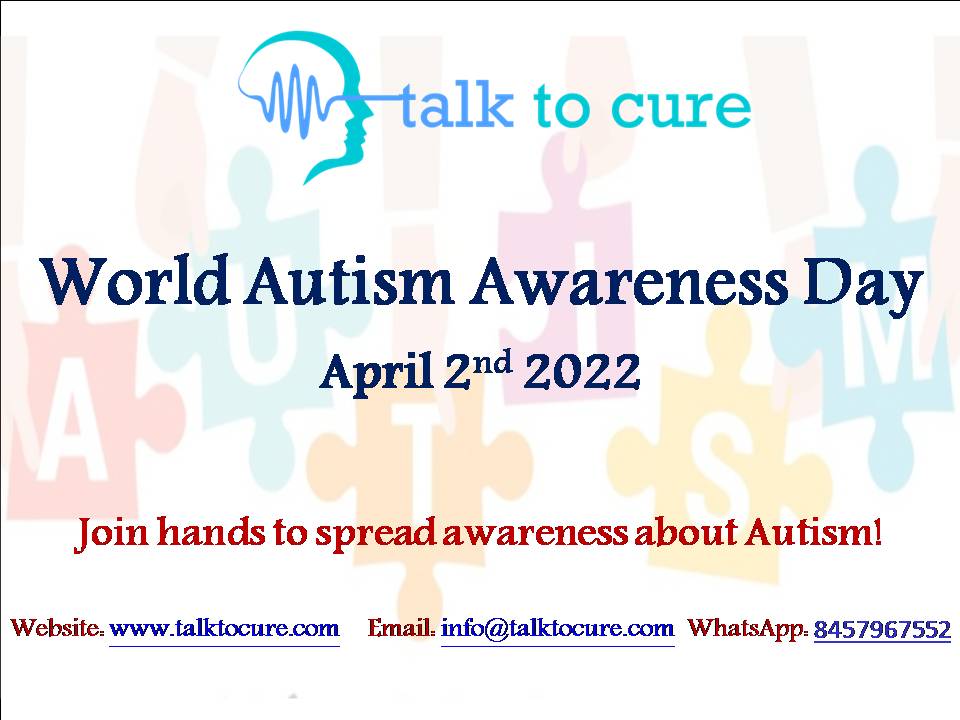RAHUL SHARMA

Autism is a childhood developmental disorder/disability which is characterized by impairments in communication, social interactions and repetitive behaviors. The condition is marked by the presence of markedly abnormal or impaired development in the mentioned areas. Children with Autism would find it challenging talking to someone, expressing their feelings and communicating demands. The condition is noticeable in the early developmental years and most symptoms can be observed by the age of two years. So, alert yourself if you notice following symptoms in your/other’s children:
Signs related to social skills and interaction:
- Child does not respond to his or her name by first year
- Does not like to play or interact with other children
- Prefers to be alone and indulges in self-engaged activities
- Avoidance and rejection of physical contact (Hugging, comforting by parents or other family members)
- Inability to understand emotional responses
Signs related to communication:
- Delay in the development of speech and language skills
- Peculiar speaking (Flat, robot like tone of voice)
- Echolalia (Repetitive phrases)
- Inability to show common gestures such as waving, pointing, etc.
Signs related to behavioral patterns:
- Repetitive behaviors like jumping, rocking and hand flapping
- Consistent hyper movements, impulsive reactions and lack of attention
- Specific routines and ritualistic behaviors and getting upset if there is even slight change in the activities and routines
- Sensitivity to sound, light and touch
- Clumsiness and lack of coordination in activities
- Aggressive behaviors towards self and others
The condition involves a range of symptoms that are kept on a spectrum and vary from each other on the basis of the presence of a particular symptom and its severity. Asperger’s syndrome is a part of this spectrum and there are others as well. Unfortunately, the condition continues lifelong and is not curable. But definitely, there is scope for improvement in the activities of daily living and behavioral issues. Not all but some of the autistic children possess intellectual and physical impairments; some of them might have significant hyperactivity and behavioral problems etc.
Many times these children are denied their basic requirements like education, love from others and are treated as if they don’t exist. According to legal guidelines they have all the rights to attend normal school and continue education like other children who achieved normal developmental milestones. They also deserve to receive love and affection and equality in the community as every child does. And most importantly, they deserve rehabilitative treatment and explore scope for improvement in problem areas.
In recent years, mental health professionals have managed to develop effective treatment programs for management of autism based on the range of symptoms and possibility of improvement.
As part of society it is our responsibility to understand such issues and spread awareness about it. In our society such conditions are badly stigmatized and perceived in a negative way. Please insure that the information reaches to maximum people. The more it spreads, the more you help others to be stigma free.
The information in this article has been presented in the simplest way so that it is easily understood by common people. It is not a diagnostic criterion for diagnosing the problem. Only a mental health professional after observing the child and interviewing the parents can decide about the presence of this condition in the child. Feel free to write me back if you wish to inquire anything related to this article or any other mental health issue.
Neelam Verma
Consultant Clinical Psychologist
